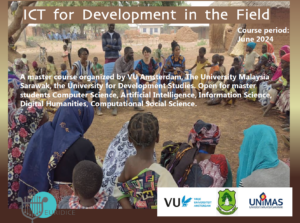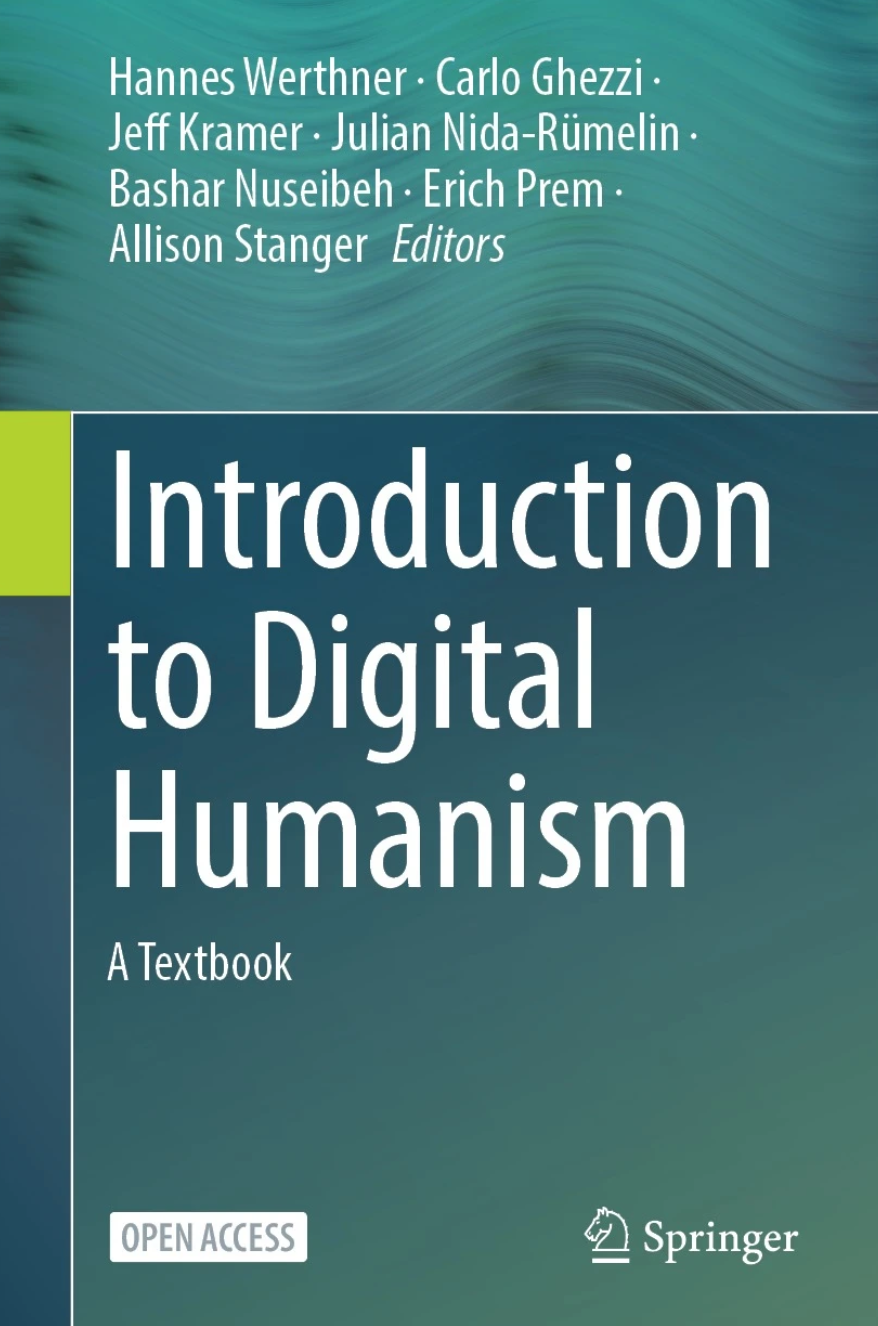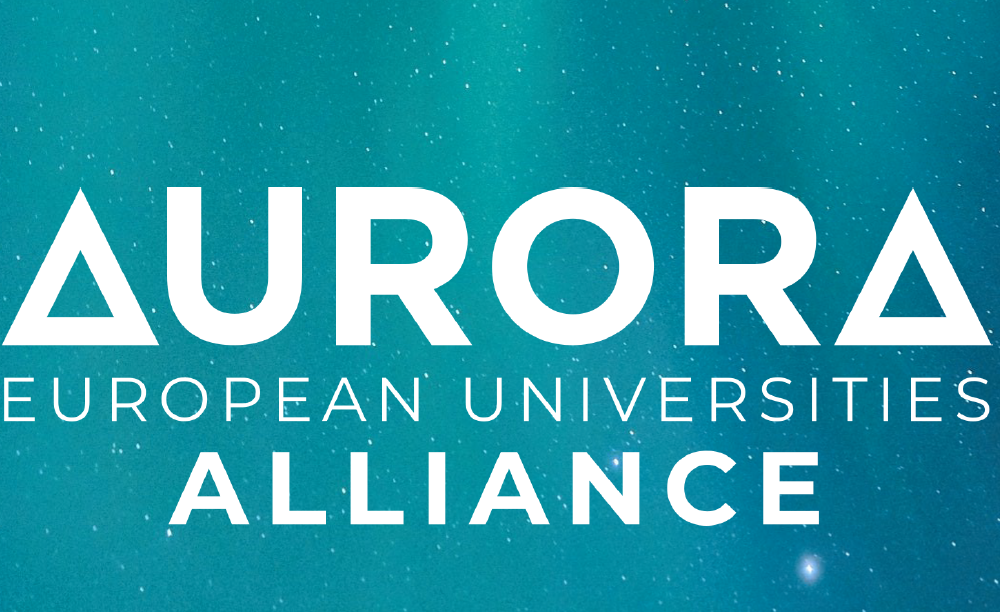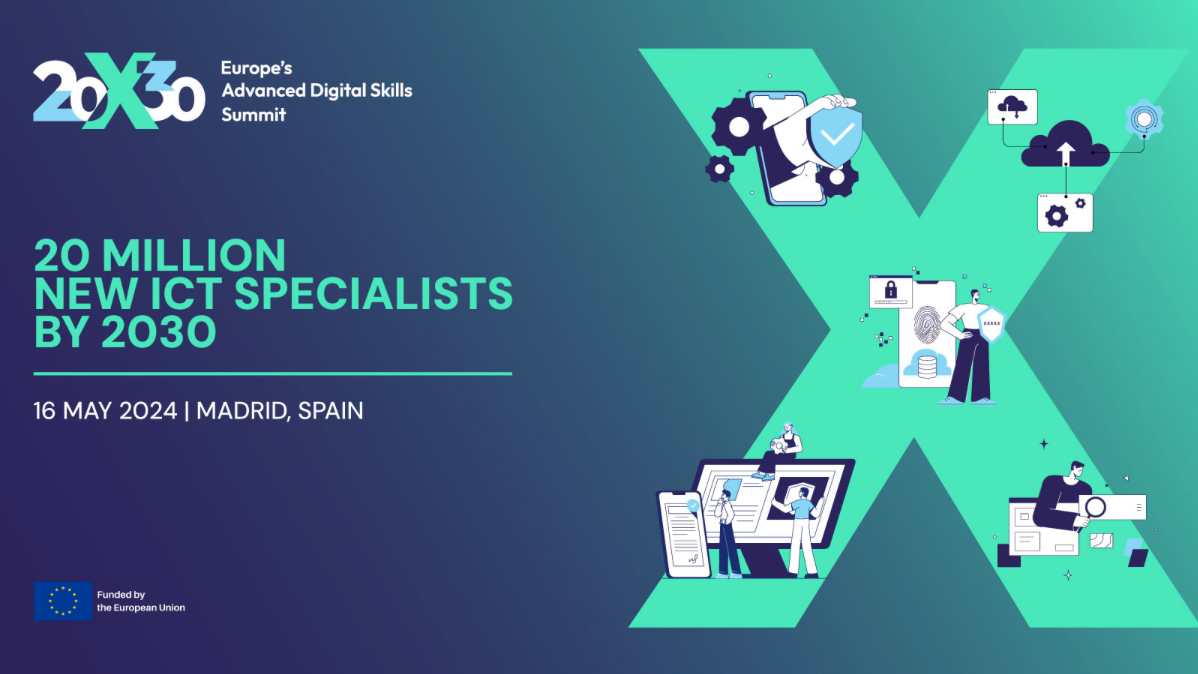Welcome to ICT4D in the Field, an EURIDICE, 6 ECTS module, that addresses the challenges and opportunities of information and communication technologies in the context of low resource environments in the Global South. This course offers you a virtual international experience in learning for societal impact.

Course theme
The field of ICT4D (Information and Communication Technologies for Development) addresses problems of, and solutions for, the “unconnected people in the world”. This holds for approximately a third of the world’s population, the majority of whom live in remote, often rural, regions of the world.
Artificial Intelligence and Data Science are currently at the center of attention as a range of innovative digital technologies with claimed opportunities and benefits. Despite the high expectations, there are also many doubts and concerns about various developments as undesirable or dangerous [1]. Heavy investments to boost ArtificiaI Intelligence and Data Science are taking place in the Global North, particularly in the big power blocs of US, Europe and China. However, what is the case for the Global North is not necessarily valid for the Global South, and this consequently requires independent and critical investigation.
Accordingly, the course ICT4D in the Field undertakes to investigate these matters in and for the Global South, thereby giving due attention to the specific contexts of people’s needs as well as the different geographic, economic, cultural and socio-political contexts.
Download the course syllabus. [tbd]
Course setup
You will do group assignments, focused on different geographies (countries/regions) in the South, seeking to answer a number of key research questions:
(a) What is the state-of-play regarding applications of Digital technologies for Social Good relevant to people in the Global South, and more specifically, in low resource environments? Our reference points are the UN’s Sustainable Development Goals (SDGs), such as ensuring food & nutrition security, reducing inequalities, health and well-being, inclusive education for all, etc.
(b) What are foreseeable adverse consequences, risks and social impacts related to innovation through new digital technologies, and how may this be mitigated?
(c) In consequence, what are the implications for the application of digital technologies specifically in the context of the respective Global South countries or regions, in terms of policies, regulation, investment, social entrepreneurship, education, civil/civic debate?
The course will offer lectures by guest speakers — experts in AI in and for the Global South — from academia and civil society. It will provides technology introductions to AI technologies, highlighting current real-world applications, aiming to discuss: “How can ICTs and AI be made useful for and with people living in low reource environments?”
Active “21st century” collaborative learning
During the course you will work (online) in groups of 4-5 students on assignments related to the above research questions. This is open-ended and creative evidence-based work following an iterative “mixed-methods” approach to the gathering of empirical and design data.
The groups assignment involves close collaboration with local rural communities and aims for a full cycle of design, development and deployment/roll-out in the field of an AI project, information system or service that is demonstrably valuable for the local communities involved (from Ghana and/or Sarawak Malaysia).
An individual essay assignment includes reviewing relevant docs and literature, organizing and analyzing conversations with community stakeholders of potential “users” or “beneficiaries”, structured interviewing of experts and/or policy makers, and modelling and constructing a (prototype) design. Produced essays will be critically peer-reviewed (also by you students yourselves), so that your work can be iteratively improved and serve as baseline for your group’s final project report which will be presented and discussed at a plenary conference at the end of the course.
Cursusbeschrijving / Course Description as published at vu.nl/en
Assessment and deliveries
The academic content of this course is focused on real-world issues of a very much open-ended and interdisciplinary investigation nature, and its execution requires integration of a range of different academic skills and competencies, from analytical-theoretical to empirical-technical and collaborative-reflective practice ones. The deliveries and assessment criteria reflect this nature.
The deliveries, on which course assessment and success (6 ECTS credit points in total) is based, are assessed as follows:
- Project report + presentation (group work; 40% + 10%)
- Essay on AI technology, societal impact and ethics and presentation (individual; 20% + 10%)
- Lab Journal with Reflection Report (individual; 20%)
Entry requirements for participation
This interdisciplinary course is open for selected master students of VU, UDS, UNIMAS and Aurora/EURIDICE universities, having bachelor-level knowledge or experience in a relevant digital field (IS, CS, AI, digital humanities, computational social sciences, etc.)
Form of tuition:
This course is very varied and will contain lectures, guest lectures, a group project including and use case analysis and requirements analysis, and implementation. It is set up as a community service learning course, doing project work in a transdisciplinary way, i.e. in close collaboration with resource persons.
Estimated time budget
This is a very intensive 4-week course of 6 ECTS. It requires daily (four days per week) attendance of all lectures and lab sessions. In addition, you will do group work in your own time. You can expect to be working full-time during period 6.
Learning outcomes (with Dublin descriptors)
At the end of the course, students will:
- Be familiar with the various aspects and implications of the concept of the Digital Divide, and how this affects people in low resource environments (Knowledge and understanding).
- Have an understanding of technologies, methodologies, and social dimensions of the design and deployment of Information and Communication Technologies, in particular AI, in the International Development context, and be able to apply this in a real-world environment (Applying knowledge and understanding).
- Be able to understand and balance the trade-offs between technological opportunities, threats and social or ethical harm, in view of needs of people in low-resource environments (Making judgments, Investigative skills, Critical Thinking).
- Be able to (i) communicate with stakeholders about user requirements and operational goals; (ii) write a scientific report about a major aspect of the course ICT4D theme with a group of students (Communicative and Collaborative skills).
- Be trained to (i) explore the problem- and solution space in an open-ended, unfamiliar, culturally diverse low-tech, low-resource environment and (ii) identify and address a set of relevant Sustainable Development Goals (“Soft” Learning skills, Creative Problem-solving).
Lecturing team
Dr. Anna Bon – a.bon@vu.nl (General course coordinator),Dr. Cheah Waishiang (UNIMAS) (Course coordinator for UNIMAS) Mr. Francis Dittoh MSc (UDS) (Course coordinator for UDS) Mr. André Baart MSc (Babafla) ICT4D researcher and guest lecturer, Prof. Dr. Hans Akkermans (AKMC) Guest lecturer Mr. Gideon Amakama Ali – Resource person (UDS), Guest lecturer Mr. Stéphane Boyera – Resource person and ICT4D expert (SBC4D). The technical assistants (computer science masterstudent) (TAs) are Adithya Vasisth and Samuel Mojžiš.
The virtual classroom
We will use a virtual classroom, available every day, through this invite link:
Meeting ID: 981 7438 9142
Passcode: *ICT4DitF*
Creative Commons
All materials in this course are created by Anna Bon and W4RA colleagues.
They are licenced under Creative Commons CC BY-NC-SA 4.0 DEED


